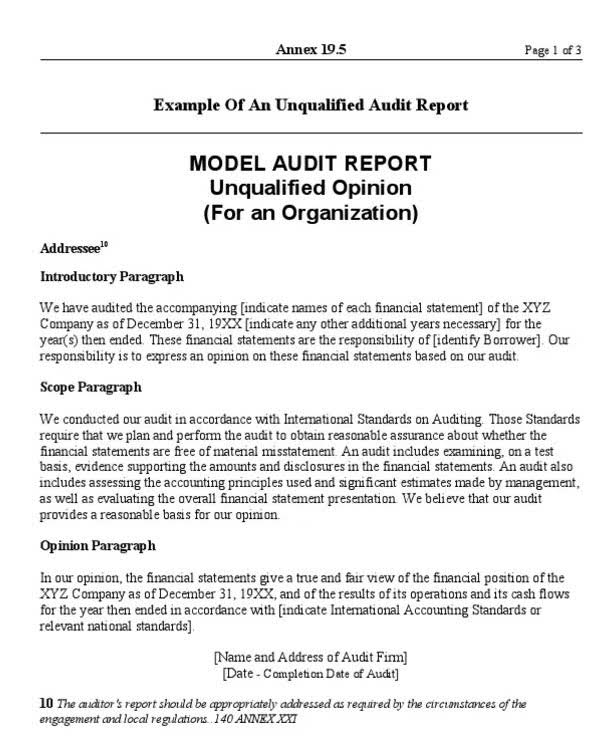
It is a designation that is considered challenging to obtain, with exact requirements varying from state to state. However, upon receiving the designation, a CPA is considered an expert in the field of accounting, and would typically enjoy a much higher salary than that of an accountant. For a breakdown on the differences between an accountant and a CPA, check out “Is a CPA the Same as an Accountant? For years, there has been a push to move the United States to follow IFRS, as IFRS is generally considered to be a better system than GAAP. This may have to do with the fact that the IFRS is more ‘principles-based’, while GAAP is more ‘rules-based’.

Create a Free Account and Ask Any Financial Question
Business transactions are properly recorded, classified under appropriate accounts and summarized into financial statement. Creative accounting is nothing but the manipulation of the operating results and financial position of the company, of course, within the confines (limits) of the accounting standards. It is generally not concerned with the accounting of individual business entities and is not based on generally accepted accounting principles. Some scholars have argued that the advent of double-entry accounting practices during that time provided a springboard for the rise of commerce and capitalism. Accounting principles differ around the world, meaning that it’s not always easy to compare the financial statements of companies from different countries. Although privately held companies are not required to abide by GAAP, publicly traded companies must file GAAP-compliant financial statements to be listed on a stock exchange.
Role & Responsibilities of Cost Auditor
For example, the balance sheet reports assets and liabilities while the income statement reports revenues and expenses. Financial accounting is governed by accounting rules and regulations such as U.S. GAAP (Generally Accepted Accounting Principles) and IFRS (International Financial Reporting Standards). Accountants help businesses maintain accurate and timely records of their finances. Accountants are responsible for maintaining records of a company’s daily transactions and compiling those transactions into financial statements such as the balance sheet, income statement, and statement of cash flows. Accountants also provide other services, such as performing periodic audits or preparing ad-hoc management reports.
Cash Flow Statement
It aims to build and solidify one’s knowledge of the foundations which are vital in building a career in accounting & finance or in managing a small business. Such accounting would have to appear on her record of cash telegrams accepted. There are four key types of accounting used by businesses in every industry and of every size. This rule is applicable to transactions involving people or businesses, for instance, a bank transaction. This rule is applicable to the assets of a business, such as cash, land, building, equipment, furniture, etc. The simple things we do and encounter everyday can actually be related to some level of accounting.
Recording of Monetary Items Only
- You’ll need to provide, on average, three years of financial statements, plus a one-year cash flow projection.
- In the first place, we maintain the records of transactions by writing various accounting books like journals and ledgers, etc.
- The Government is interested in the financial statements of business enterprise on account of taxation, labour and corporate laws.
- Once they are classified, information is summarized into reports which we call financial statements.
- This can be a great option if you want to ensure your books are in order, and that your company’s financial information is accurate, but it does come with some drawbacks.
Naturally, under the accrual method of accounting, accruals are required. Because of the simplified manner of accounting, the cash method is often used by small businesses or entities that are not required to use the accrual method of accounting. These four largest accounting firms (Ernst & Young, KPMG, PricewaterhouseCoopers, Deloitte) conduct audit, consulting, tax advisory, and other services. These firms, along with many other smaller firms, comprise the public accounting realm that generally advises financial and tax accounting.
Recording pertains to writing down or keeping records of business transactions. Once they are classified, information is summarized into reports which we call financial statements. An accountant is a professional with a bachelor’s degree who provides financial advice, tax planning and bookkeeping services.
- Without accounting, it would be incredibly difficult to gauge your business’s performance and whether it’s on track to meet its goals and obligations.
- Thus, a motor vehicle account will show the value of a motor vehicle owned by a business, not its make or mileage, etc.
- Along with helping business owners make smarter financial decisions, accounting data helps external stakeholders — such as lenders, investors and creditors — decide whether your business is a good investment or not.
- Accounting is a business language which explains the various kinds of transactions during a given period of time.
- To help, we’ll detail everything you need to know about the basics of accounting.
- Tax accounting is regulated by the Internal Revenue Service (IRS), and the IRS legally requires that your tax accounting adhere to the Internal Revenue Code (IRC).
The primary aim of accounting is to provide necessary information to the owners related to business. Accounting is used to communicate financial information in respect of net profits (or loss), assets, liabilities etc., to the interested parties. Under this system, in every transaction an account is debited and other account is credited. The crux of accountancy account meaning in business lies in finding out which of the two accounts are affected by a particular transaction and out of these two accounts which account is to be debited and which account is to be credited. As mentioned earlier, accounting information is used by different stakeholders, especially the management, to decide the future course of action for the organisation.
What Are the Basic Accounting Principles?
The role of an accountant is to responsibly report and interpret financial records. Whereas you might only periodically consult your accountant, a bookkeeper touches base more frequently and handles daily accounting tasks. Regardless of who you hire, knowing basic accounting principles can help you understand your business better and have more productive conversations with your financial team.
For example, imagine a company receives a $1,000 payment for a consulting job to be completed next month. Under accrual accounting, the company is not allowed to recognize the $1,000 as revenue, as it has technically not yet performed the work and earned the income. The transaction is recorded as a debit to cash and a credit to unearned revenue, a liability account. When the company earns the revenue next month, it clears the unearned revenue credit and records actual revenue, erasing the debt to cash. A cash flow statement is used by management to better understand how cash is being spent and received. It extracts only items that impact cash, allowing for the clearest possible picture of how money is being used, which can be somewhat cloudy if the business is using accrual accounting.
- Their primary job is to help clients with their taxes so they can avoid paying too much or too little in federal income or state income taxes.
- An income statement can be useful to management, but managerial accounting gives a company better insight into production and pricing strategies compared with financial accounting.
- The primary aim of accounting is to provide necessary information to the owners related to business.
- Cost accounting focuses on a detailed break-up of costs for effective cost control.
- You’ll be paying them to produce reports that provide regular updates on the company’s financial health and help you interpret those reports.
- Reliable information is verifiable, representationally faithful, and neutral.
What is Accounting? Definition, Objectives, Advantages, Limitation, Process

Similarly, in the purchase account, we show only the monetary value of purchases, not the quantity, type, etc. of goods purchased. For example, placing a purchase order is a transaction but it has no financial implication until the goods are actually delivered by the supplier to the buyer. This classification is important because all information must be seen in a proper perspective to be meaningful. The first thing to note about accounting is that it is an art, not a science.

